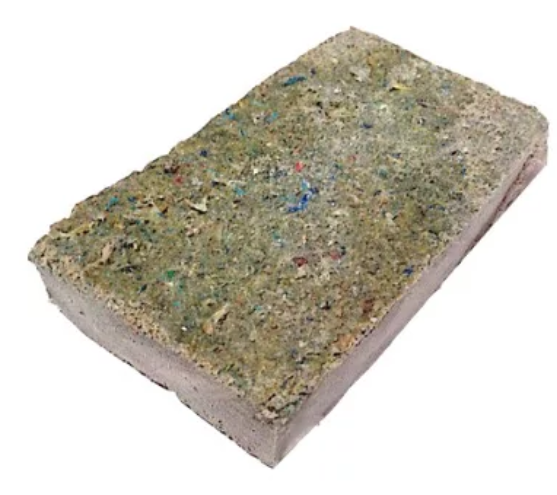

A group of university students in India developed a sturdy brick made from plastic waste.
The supposed project was an initiative of Abhishek Banerjee with his classmates Agnimitra Sengupta, Ankan Podder, and Utsav Bhattacharyya, who are all students of Jadavpur University.
In 2017, they founded Qube, a social enterprise, and developed the plastic brick which they called "Plastiqube".
The 22-year old founder compared their product to "Lego bricks" since it works by "interlocking grooves on the bottom and the top".
To make this possible, the team collected the raw ingredients -- which are mostly plastic bottles and disposable bags -- from the waste collectors in West Bengal. Then, it was cleaned, shredded, and converted to blocks through pressing machine.
Despite the rather long procedure, Banerjee revealed that each Plastiqube brick only cost five to six rupees (about 8 cents), which is a bit cheaper compared to traditional clay bricks worth 10 rupees (14 cents).
Although it hasn't been tested on buildings, Banerjee is confident that the bricks will last even longer than traditional clay bricks. Fire resistance and long-term durability tests are also currently on-going.
However, this innovation also won recognition in the United Nation's 2018 Youth Champions of the Earth's awards. All founders of Qube were also included in Forbes's "30 under 30" Social Entrepreneurs for Asia.
"Modern Slavery"
According to the report, India's daily plastic waste can go over 25,000 tons. At least 40 percent of it is often uncollected.
Each plastic brick needed at least 1.6 kilograms of plastic waste, which might be a lot but still too few considering the amount of waste India collects every day.
Banerjee said that this project sustainable, and is literally built out of garbage.
While it is true that one of Qube's main goal is to lessen the plastic waste accumulation in India, what actually inspired Banerjee to start this project is the "modern slavery" he had witnessed during a field trip.
He recalled that in 2016 while he was still an engineering student, he visited a traditional brick kiln -- a thermally insulated chamber which hardens bricks, pottery, and any similar items -- and he witnessed how the workers were treated inhumanely. The working conditions were also very improper -- people were forced to dig clay without any hand protection.
Moreover, bonded labor--or forcing someone to work for free in exchange for paying off debts--is also a widespread practice in the brick kilns industry.
And since brick kilns itself is detrimental to the environment -- as it emits dust and sulfur dioxide, which are both pollutants and can cause respiratory diseases -- Banerjee was inspired to create a product that can benefit both the society and the environment.
Carbon Emission
According to the report, the 140,000 brick kilns in India burn up to 20 million tons of coal each year and emit at least 40 million tons of carbon.
According to Banerjee, the Plastique bricks do not use mortar, and by taking it out along with the kilns, the country can save energy up to 70 percent, resulting in a lower carbon footprint.
India is dealing with a massive air pollution problem. Recently, its capital, New Delhi, became a "gas chamber" after polluting gases accumulated in the city, living its citizens blinded and suffocated with toxic smug.
Twenty-two out of 30 most polluted cities in the world also came from India, according to AirVisual.
ALSO READ: New Delhi: The Newest City of Toxic Gas
© 2025 NatureWorldNews.com All rights reserved. Do not reproduce without permission.





